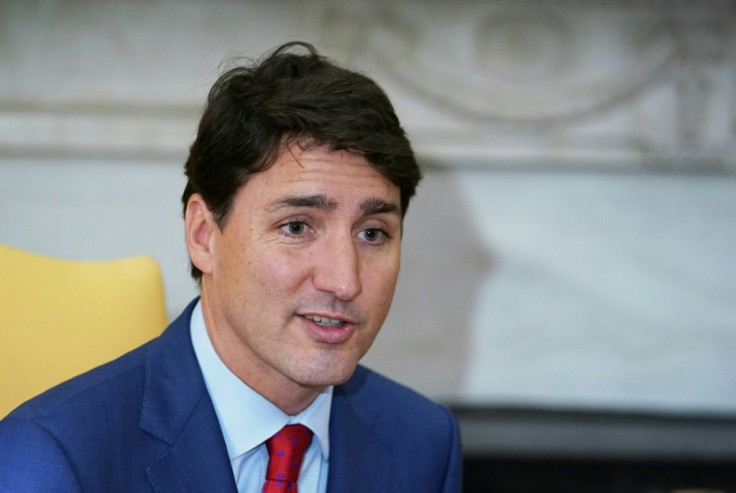Canada's Trudeau Denies Giving Ground On Aluminum In USMCA

Canada's Prime Minister Justin Trudeau on Wednesday denied charges that he sacrificed the nation's aluminum industry to reach a new North American free trade deal.
The new agreement signed Tuesday in Mexico City stipulates that 70 percent of the steel and aluminum used in cars in North America must be produced in Canada, the United States or Mexico.
The revised US-Mexico-Canada Agreement specifies that steel it must be molten metal poured in North America.
But that is not the case for aluminum, which could open the door to the use of Chinese metal recycled in Mexico, according to the Canadian industry and some in the opposition in Ottawa.
The new agreement specifies that requirements for aluminum will be considered after 10 years.
Yves-Fran?ois Blanchet, leader of the Bloc Quebecois independence party in the House of Commons, blasted Trudeau for agreeing to the terms, saying that "for 10 years, Canada is forbidden to protect aluminum as it does steel."
But Trudeau told lawmakers that "the new agreement represents a gain for workers in the aluminum sector" since the 70 percent local content requirement was not mandated in the 1994 NAFTA, which the USMCA will replace.
And he noted that his government in May negotiated a repeal of the punitive tariffs that US President Donald Trump imposed on Canadian and Mexican aluminum.
Canada is the largest supplier of aluminum to the United States, and eight of Canada's nine aluminum plants are located in Quebec.
The industry also objects to the new trade rules.
"The advantage thus conferred to Mexico makes it more or less China's North American backyard to dispose of the products of its overcapacity, thereby generating the gradual relocation of North American transformers to Mexico," said Jean Simard, head of the Aluminium Association of Canada.
"There will be consequences on our value chain and more directly on our US customers, which will affect our competitiveness in the future."
© Copyright AFP 2024. All rights reserved.





















